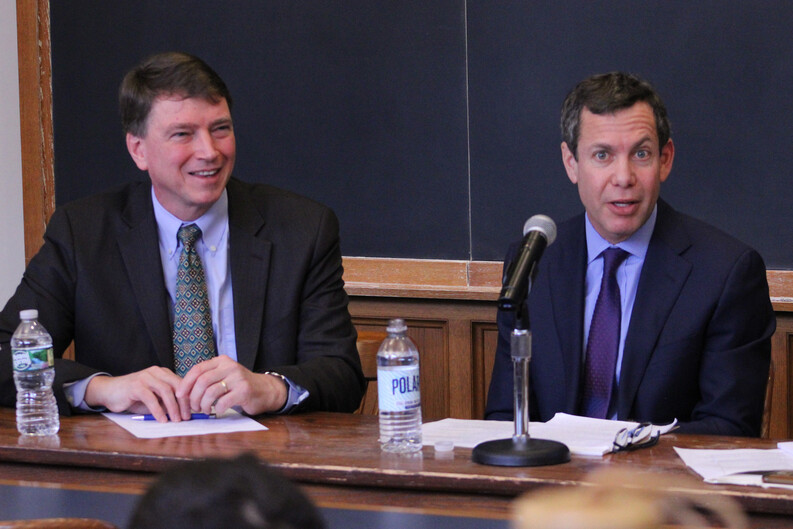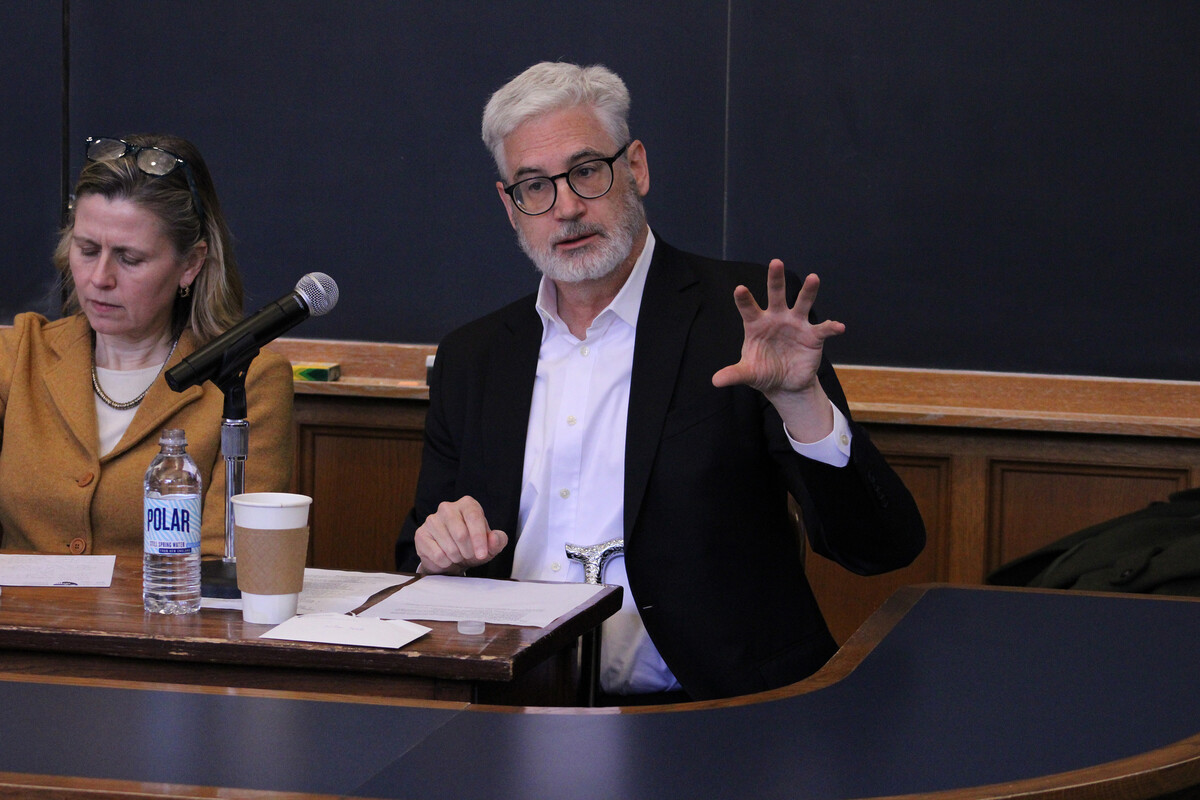Experts Offer Clashing Views of Patient Assistance Programs, Kickbacks, and the Court

Pharmaceutical companies sometimes offer discounts or other financial assistance to help patients pay for prescriptions. Known as Patient Assistance Programs (PAPs), this practice can be lucrative for pharmaceutical companies, which raises concerns for some observers.
On Feb. 12, the Solomon Center for Health Law and Policy hosted a panel titled “Patient-Assistance Programs, Kickbacks, and the Court” to investigate the important legal issues that PAPs raise and consider how the private sector can best help patients. The panel featured four experts with divergent views on PAPs.
Medicare, like other insurance plans, uses a formulary — a list of covered drugs — that is separated into tiers by copay amount. Drugs with lower copays are assigned to lower tiers, meaning they are preferred. When Medicare partially covers a drug’s cost, the manufacturer can use a PAP to lower the copay, and so get the drug assigned to a lower tier, without significantly lowering the actual cost of the drug. More patients may choose the drug over other options that cost Medicare less. For some critics of PAPs, this amounts to an illegal kickback — an issue raised in a least one report.
Doug Hallward-Driemeier, appellate and Supreme Court partner at Ropes & Gray LLP, initiated the discussion by providing a historical overview of anti-kickback statutes, emphasizing their role in preventing fraud and abuse within the U.S. healthcare system. He highlighted the significance of evaluating the impact of such statues on individual patients versus the broader systemic impact.
Section 1128B(b) of the Social Security Act makes it a felony to solicit or receive any remuneration (payment) to induce someone to buy anything that Medicare or another government health program will reimburse. The Department of Justice has renewed enforcement of section 1128(B)(b) and similar statutes, but supporters of PAPs argue that the programs are crucial for patients who would otherwise be forced to go without necessary medications.
Gregg Shapiro, whistleblower attorney at Gregg Shapiro Law LLC and former chief of the Affirmative Civil Enforcement Unit, Department of Justice, pointed out that pharmaceutical companies have played games with government-sponsored insurance and PAPs, driving anti-kickback enforcement activity from 2016 to the present. Manufacturer-sponsored PAPs usually focus on a narrow range of drugs, and pharmaceutical companies are often unwilling to give to foundations that subsidize a competitor’s drugs, critics point out. As a result, they say, PAPs can distort the decision-making processes of patients and clinicians.

Willian Sarraille, regulatory consultant at Sarraille & Associates, emphasized that PAPs offer rare disease patients like himself multiple benefits — they can make life-saving medication accessible for individual patients, and they also create economic incentives for pharmaceutical companies to invest in innovative developments. He questioned the federal government’s position that “remuneration” and “induce” in the anti-kickback statute should be construed broadly. The opposite position, he explained, is that the statute’s focus is corruption, and the terms “remuneration” and “induce” should be understood accordingly. He said that this narrower view leaves room for PAPs that provide copay support for patients to obtain medication that a doctor has already determined to be medically necessary. Instead of criminal enforcement, he said, the federal government can focus on developing additional safeguards to prevent companies from using PAPs to interfere with competition.
Hallward-Driemeier, noting that he was speaking as someone who represents pharmaceutical companies, suggested that there was common ground between supporters and critics of PAPs and potential reforms that would satisfy both. Drugs for rare diseases have higher development costs and a smaller patient population than drugs for more common conditions. This leads pharmaceutical companies to market those drugs at a price out of reach for patients who are over the federal poverty line but not wealthy enough to pay the entire copay. If PAPs are criminalized, he noted, these patients will not receive needed medication. But PAPs for more common drugs may distort the patient or clinician’s decision-making process in a way that implicates the anti-kickback statute. For example, he said, this could make a branded drug cheaper for individual patients than a generic, leading to a greater expense for the government.
Shapiro disputed the idea that enforcement efforts put rare disease patients at risk. He noted that the Department of Health and Human Services had issued opinions and guidance acknowledging that assistance programs for rare disease patients involve unique considerations.
Fiona Scott Morton, Theodore Nierenberg Professor of Economics at Yale School of Management, explained that the majority of funds in these situations are tied to Medicare Part D. She attributed the rising costs to poor formulary design. Pharmacy Benefit Managers (PBMs), which develop formularies, have few options when a pharmaceutical company uses a PAP to make its drug cheaper for patients than competitor drugs, Scott Morton noted. At that point, PBMs have already negotiated with pharmaceutical companies. An increasingly popular but undesirable solution, Scott Morton and Mr. Shapiro mentioned, is to simply take the drug off the formulary.
Scott Morton proposed solutions for moving forward, emphasizing two key points. First, the system should directly cover the costs of breakthrough drugs, with a careful definition of what qualifies as a breakthrough. Second, reforms in insurance design should be implemented to eliminate the need for PAPs — force all companies to compete during PBM negotiations. Because such reforms would significantly limit profits, Scott Morton cautioned, they are unlikely to come to fruition.
Panelists then debated the efficacy of the new Medicare price negotiation process. The event concluded with audience questions, particularly focusing on legal definitions associated with anti-kickback statutes.
This event was co-sponsored by the Yale Health Law and Policy Society (YHeLPS).


